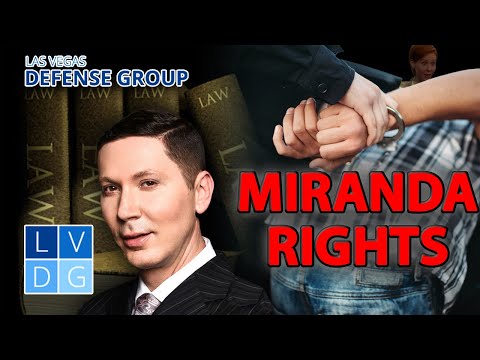Posted on
It depends on the situation, but in many cases it does not matter.
Miranda rights are a warning that police are legally required to recite to criminal suspects when:
- the suspects are in police custody, and
- the police are about to interrogate the suspects.
The Miranda warning informs the suspects that they have the right not to speak to the police, and that anything they do say can be used against them in court. In short, Miranda warnings remind the suspects that they have a Constitutional right against self-incrimination.
Note that police have no obligation to recite Miranda warnings to suspects who are not in police custody and not being interrogated. In Nevada DUI cases, police get around having to recite Miranda warnings by asking all their questions to suspects prior to arrest. As long as the police have probable cause to pull over a DUI suspect, the police may ask the driver questions such as if they had anything to drink without having to recite Miranda first. It is almost never advisable for suspects to waive their Miranda rights and submit to police interrogation.
In many Nevada DUI cases, the police arrest suspects only after they asked all their questions. And once the suspect is in custody, the police often cease any interrogation, thereby eliminating the requirement to recite Miranda. If the suspect makes an incriminating statement following an arrest without Miranda warnings, the statements are probably admissible in court because the suspect volunteered the statements and was not submitting to police interrogation. Read more information on Miranda rights in Nevada DUI law.



